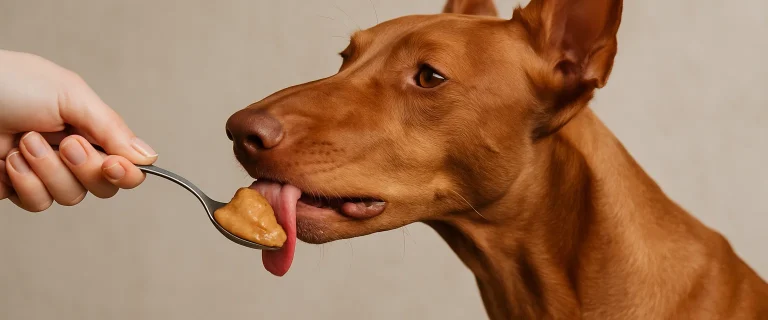Marshmallows are a classic treat—perfect for s’mores, cocoa, or even just eating straight out of the bag. But when your dog gives you those big, pleading eyes as you pop one into your mouth, you might wonder, Can dogs eat marshmallows? The short answer is yes—but with some very massive caveats. Let’s break it down.
Are Marshmallows Safe for Dogs?
Not all marshmallows are created equal. Some types are relatively harmless for dogs in small quantities, while others can be downright dangerous. The key lies in the ingredients list.
- Sugar and Corn Syrup: Most marshmallows are made with sugar or corn syrup. While these aren’t toxic, they aren’t healthy for dogs. Too much sugar can lead to weight gain, dental problems, or even diabetes if consumed regularly.
- Xylitol: This artificial sweetener is a dealbreaker. Found in some sugar-free marshmallows, xylitol is highly toxic to dogs and can cause a sudden, life-threatening drop in blood sugar, seizures, liver failure, or worse. If your marshmallows contain xylitol, keep them far away from your pup.
- Gelatin and Vanilla: These are common ingredients in marshmallows and are generally safe for dogs. Gelatin, in fact, can even support joint health in dogs, though the amount in marshmallows is minimal.
So, Can Dogs Eat Marshmallows?
If the marshmallows are plain (no xylitol, chocolate coating, or other toxic ingredients), your dog can have one or two as a very occasional treat. But “occasional” is the operative word here.

Potential Risks of Giving Marshmallows to Dogs
While a plain marshmallow here and there won’t harm your dog, there are a few risks to be aware of:
1. Upset Stomach
Marshmallows are hard to digest, especially for dogs with sensitive stomachs. Even a small amount can lead to vomiting, diarrhea, or gas.
2. Risk of Choking
Marshmallows are soft and sticky, which makes them a choking hazard—especially for smaller breeds. Always supervise your dog while they eat and consider cutting the marshmallow into smaller pieces.
3. Long-Term Health Issues
Frequent treats high in sugar can contribute to obesity, diabetes, and tooth decay. Dogs simply don’t need sugar in their diets, so it’s better to err on the side of caution.
Are There Any Benefits?
Let’s be honest: marshmallows are far from a “superfood,” but there are a few minor upsides if given responsibly.
- Training Rewards: Marshmallows can be used as high-value training treats in tiny amounts. Their sweet smell and chewy texture can capture your dog’s attention, especially during recall training.
- Pill Pockets: Struggling to get your dog to take their medicine? A small piece of marshmallow can be a great way to hide a pill—just make sure it’s free from harmful ingredients.
- Fun Occasional Treat: Let’s face it—sometimes, it’s fun to share a tiny indulgence with your dog. Just make sure it’s done safely!
Freya loves marshmallows. Of course, there’s very little in the world of food that she doesn’t love, so that’s not saying much. Still, she does look at them as high-value treats. I give them to her on VERY RARE occasions (like when I run out of regular dog training treats), and I only use the mini marshmallows.
How to Safely Give Your Dog Marshmallows
If you decide to give your dog a marshmallow, follow these tips to minimize risks:
- Check the Label: Make sure the marshmallows don’t contain xylitol or any other harmful ingredients.
- Limit the Amount: Stick to one or two small marshmallows occasionally. For smaller dogs, even two might be too much.
- Cut Them Up: If you’re using regular-sized marshmallows, slice them into smaller pieces to reduce the choking risk, especially for small breeds or puppies.
- Watch for Reactions: After giving your dog a marshmallow, monitor them for signs of stomach upset or other adverse reactions.
- Stick to Special Occasions: Treat marshmallows as a once-in-a-while indulgence, not a regular snack.

Alternatives to Marshmallows
If you’re looking for a healthier way to treat your dog, consider these alternatives:
- Dog-Safe Fruits: Blueberries, apple slices (without seeds), or bananas are naturally sweet and much healthier.
- Dog Treats: Opt for low-calorie, store-bought dog treats that are specifically designed for their dietary needs.
- Homemade Goodies: You can even make your own dog-safe marshmallow-like treats with gelatin and unsweetened broth!
The Bottom Line
While plain marshmallows aren’t toxic to dogs, they aren’t exactly healthy either. If you want to share one or two as an occasional treat, make sure they’re free from harmful ingredients like xylitol and monitor your dog for any signs of stomach upset. But honestly? Your dog would probably prefer a piece of cheese or a crunchy carrot stick anyway.
Author
-

Hi there! I'm Nicole, the editor-in-chief and one of the writers here at DogVills. I've been a dog owner for most of my adult life and a dog lover for much longer than that. I grew up with a wonderful German Shepherd named Jake, who I loved SO much that I named my son after him. When I'm not writing for DogVills or my own site, Pretty Opinionated, I love spending time with my teenager (when he actually lets me) and my Pharaoh Hound, Freya. I'm also an avid reader AND a total TV fanatic.
View all posts



